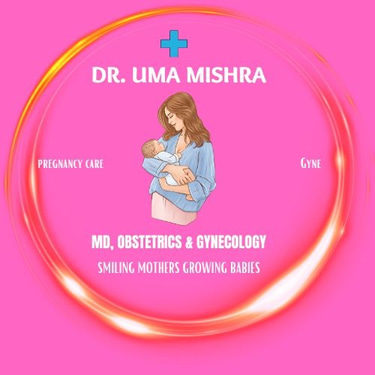Mastering a Full-Term Pregnancy: Decoding Preterm Labor Risks, Complications, and Prevention
Embark on a journey through the intricacies of preterm labor, unveiling its lurking risks, potential complications, and actionable prevention strategies. From deciphering key risk factors to understanding the complications associated with delivering preterm babies, this comprehensive guide empowers expectant mothers with knowledge. Learn how proactive steps, such as regular prenatal care, a nutrient-rich diet, and lifestyle choices, can tip the scales in favor of a healthy, full-term pregnancy. Navigate the nuances of preterm labor with insights that matter, ensuring the best possible outcome for both you and your little one. #PretermLaborPrevention #HealthyPregnancyJourney #MaternalWellnessMatters #FullTermPregnancyTips
Dr Uma Mishra, MD, Gynecologist
3/10/20242 min read


Navigating Preterm Labor: Understanding Risks, Symptoms, and When to Seek Help of Gynecologist
Overview:
Preterm labor poses a significant threat when regular contractions lead to cervical opening between week 20 and week 37 of pregnancy, potentially resulting in premature birth. The health risks for premature babies increase with earlier births, often requiring specialized care in neonatal intensive care units and possibly leading to long-term mental and physical challenges.
Causes and Risk Factors:
The specific cause of preterm labor remains unclear, although certain risk factors may elevate its likelihood. It's important to note that preterm labor can also occur in pregnant women with no known risk factors, emphasizing the need for awareness and prompt medical attention.
Symptoms:
Recognizing the signs and symptoms of preterm labor is crucial for timely intervention. These may include:
- Regular or frequent abdominal contractions
- Persistent low backache
- Pelvic or lower abdominal pressure
- Mild abdominal cramps
- Vaginal spotting or light bleeding
- Preterm rupture of membranes, characterized by fluid gush or continuous trickle after membrane rupture
- Changes in vaginal discharge, such as watery, mucus-like, or bloody discharge
When to Seek Medical Attention:
Immediate contact with a healthcare provider is essential upon experiencing any signs or symptoms associated with preterm labor. Whether it's abdominal tightening, backache, pelvic pressure, cramps, spotting, or changes in vaginal discharge, prompt medical evaluation can help determine the appropriate course of action.
1. Risk Factors:
- Previous preterm labor or premature birth
- Multiple pregnancies (twins, triplets)
- Shortened cervix
- Uterine or placental problems
- Smoking or illicit drug use
- Infections, especially in the amniotic fluid or lower genital tract
- Chronic conditions (high blood pressure, diabetes, autoimmune disease, depression)
- Stressful life events
- Too much amniotic fluid (polyhydramnios)
- Vaginal bleeding during pregnancy
- Fetal birth defects
- Short or long intervals between pregnancies
- Mother's age (both young and older)
- Black, non-Hispanic race and ethnicity
2. Complications:
- Delivering a preterm baby with potential health concerns:
- Low birth weight
- Breathing difficulties
- Underdeveloped organs
- Vision problems
- Increased risk of cerebral palsy, learning disabilities, and behavioral problems
3. Prevention:
- Seek regular prenatal care for consistent monitoring
- Maintain a healthy diet rich in polyunsaturated fatty acids (found in nuts, seeds, fish, and seed oils)
- Quit smoking and avoid illicit drugs
- Consider pregnancy spacing with advice from healthcare providers
- Be cautious with assisted reproductive technology (ART) to reduce the risk of multiple pregnancies
- Manage chronic conditions like diabetes, high blood pressure, and obesity under healthcare guidance
Conclusion:
Understanding the risks and symptoms of preterm labor empowers expectant mothers to take proactive steps for the well-being of both themselves and their unborn child. Timely medical intervention can make a significant difference in mitigating the potential challenges associated with preterm labor. Stay informed, stay vigilant, and prioritize your health during this critical period. #PretermLabor #PregnancyHealth #MaternalCare #NeonatalHealth
Dr Uma Mishra, Gynecologist is one of the best gynecologists in Noida. You can consult online or offline
